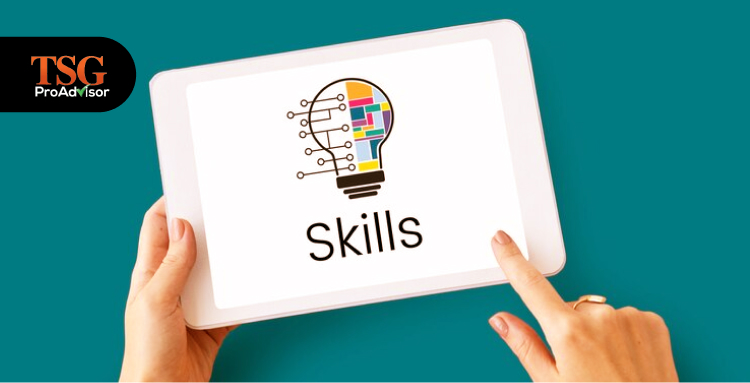Corporate industries are increasingly looking for employees with strong soft skills—like teamwork, communication, and problem-solving—that allow them to handle challenges smoothly. Business mentorship programs are among the best ways to build these essential skills, as they connect employees with experienced professionals who offer direct guidance and support.
It turns out that 76% of employees in big companies see mentorship as a critical part of their career growth. Unlike technical skills, you can’t always pick up soft skills from a textbook or an online course. So, how does mentorship actually help employees build these skills—and how can it impact the company as a whole? Let’s dive in.
1) How can mentoring develop soft skills?
Mentorship goes beyond traditional training methods and works through personal interaction. It can help develop various soft skills in the following way.
-
Learning through observation
Mentees pay close attention to how their mentors tackle various situations, picking up on how they interact with others and the way they make decisions. By watching their mentors in action, mentees get a firsthand look at what effective communication really looks like, how problems can be solved with finesse, and the importance of sharp critical thinking in real-life scenarios. This kind of close observation gives them a deep dive into the habits and approaches that make someone genuinely skilled and impactful.
-
Getting constructive feedback
With the guidance and feedback received from mentors, anyone can pinpoint areas where they need improvement. By getting necessary feedback on their communication and interpersonal skills, they can improve their collaborative strategies with colleagues.
-
Developing confidence
Mentorship offers a secure environment to practice new skills, facilitating the development of confidence in mentees. Mentors provide guidance and encouragement to inspire them to venture beyond their comfort zones and avoid all kinds of risks. And they can also help improve the ability of mentees to connect with others. You can find such mentors from the US Small Business Administration.
2) Key soft skills developed through mentorship
 Apart from providing career guidance, mentorship helps develop the following soft skills that no one can learn from books or formal training.
Apart from providing career guidance, mentorship helps develop the following soft skills that no one can learn from books or formal training.
-
Communication Skills
Mentorship offers a platform that promotes open communication. This allows mentees to express themselves clearly and confidently. Mentors ask the mentees to share their ideas about a particular topic, present their opinions, and ask any questions.
-
Active listening
Good mentorship encourages people to listen actively not only to what is said but also to what is not said during mentoring. As a consequence, they learn to understand others’ perspectives and develop stronger relationships with both colleagues and clients in the workplace.
-
Empathy
Mentorship fosters a culture of empathy by guiding mentees to recognize and value the emotions of their peers. Mentors represent empathic behavior that provides a framework for mentees to adopt in their personalized interactions.
-
Problem-solving and critical thinking
Mentorship helps mentees to assess challenges from various perspectives in the workplace and explore creative solutions. Mentors encourage them to think critically, evaluate alternative options, and arrive at decisions based on logic and intuition.
-
Collaboration and teamwork
Mentorship emphasizes collaboration, enabling individuals to appreciate the importance of partnering with others to achieve common objectives. Mentors share different techniques for effective collaboration and guide them to handle conflicts that may arise within team settings.
-
Flexibility and adaptability
Mentors share their knowledge and experiences of adapting to change, whether it involves career transitions or unforeseen challenges. They also provide guidance on how to stay flexible and cultivate adaptation during the toughest period of corporate life.
-
Networking
Establishing connections is important for professional advancement, and mentorship provides a foundation to develop meaningful relationships.
3) Designing a mentorship program for soft skills
 Designing mentorship programs for soft skills needs thoughtful planning and a clear goal set. So, you have to follow a step-by-step approach to develop a successful mentorship program.
Designing mentorship programs for soft skills needs thoughtful planning and a clear goal set. So, you have to follow a step-by-step approach to develop a successful mentorship program.
-
Determining mentoring targets
Outline the particular soft skills that the program intends to improve. Determine the specific audience like entry-level staff, managers, and executive leaders. And outline the skills they need to enhance.
-
Selecting mentors
Selecting appropriate mentors is essential. An ideal mentor must represent strong soft skills and show a dedication to fostering those capabilities in others. So, you have to choose mentors, who have showcased proficiency in communication, empathy, and collaboration.
-
Creating mentor-mentee pairs
Pairing mentors and mentees according to compatibility is really important for a productive mentorship relationship. Aligning professional objectives, relevant industry experience, or compatible personality traits can facilitate the development of impactful mentor-mentee partnerships. Such bonding between a mentor and mentee helps promote learning and advancement in an effective way.
-
Establishing clear expectations
Establish precise expectations for both mentors and mentees. Outline the objective of this program, specify the required time investment, and articulate the expected outcomes for each participant.
-
Implementing mentoring program
After completing the groundwork with adequate functional elements you can initiate the mentorship program. Ensure regular check-ins, feedback sessions, and opportunities for both the mentors and mentees to assess their progress from this program. Additionally, you can support participant’s development by offering resources like communication guidelines, learning materials, and problem-solving activities. You will get various mentoring resources from The US Office of Personnel Management to create an effective mentorship program.
4) Next-generation approaches for mentoring to develop soft skills
 Since workplaces and employee requirements are constantly changing, organizations are looking for fresh and innovative mentorship approaches in business. The following next-generation mentoring approaches are necessary to implement in both personal and professional settings to develop various soft skills.
Since workplaces and employee requirements are constantly changing, organizations are looking for fresh and innovative mentorship approaches in business. The following next-generation mentoring approaches are necessary to implement in both personal and professional settings to develop various soft skills.
-
Arranging digital mentorship platforms
Digital platforms improve the accessibility and flexibility of mentorship opportunities. The expansion of remote work has amplified the demand for virtual mentorship, increasing connections between mentors and mentees regardless of their geographic locations. Digital mentorship platforms enable immediate communication, monitor progress, and offer interactive resources for the improvement of soft skills.
-
Prioritizing diversity and inclusion
Incorporating diversity in mentorship initiatives enhances the overall experience of learning. Strategically pairing both mentor and mentees helps organizations facilitate the development of cultural sensitivity in mentees and promote an inclusive mindset.
Engaging with a variety of viewpoints enhances empathy and adaptability which enables mentees to collaborate successfully within multicultural teams.
-
Incorporating leadership programs into training and development efforts
A rising number of organizations are integrating leadership development within their mentorship initiatives. Integrating mentorship with leadership development enables organizations to transform employees into versatile professionals, enhancing both their technical and interpersonal competencies. Leadership programs frequently offer workshops on communication, conflict resolution, and decision-making skills. These workshops pair well with mentorship, which helps develop essential soft skills.
Summing up: How can TSG Pro Advisor help you develop soft skills through business mentorship?
TSG Pro Advisor is always committed to empowering professionals at all levels to refine their soft skills through organized and accessible mentorship programs. This is how we can assist you in developing essential soft skills through business mentorship.
-
Developing communication skills
Our mentors can help you learn both written and verbal communication skills. We can also help you express your ideas on a certain topic, listen actively, and develop stronger connections with your surrounding people.
-
Building empathy and emotional intelligence
We can teach you how to understand others’ emotions and respond thoughtfully. This will help you become a more compassionate team player and leader.
-
Expanding professional networks
Our mentorship program will guide you to connect with industry leaders, who can open doors to new and better opportunities. As a consequence, you will get access to different resources that can support your career development.
-
Improving problem-solving abilities
By developing your analyzing capacity, we can help you think critically and approach challenges creatively. This is important for finding better options and making effective decisions with confidence.
-
Getting access to virtual sessions
Our mentorship program is accessible to all individuals, regardless of their geographic location through our digital platform. Such virtual mentoring sessions can provide flexible learning opportunities based on your schedule, no matter where you are.
We will provide a free consultation initially to discuss your case. So, join TSG Pro Advisor and take the next step in your professional journey. Lastly, if you have any queries on business mentorship, leave a comment below. We will respond as soon as we can.


